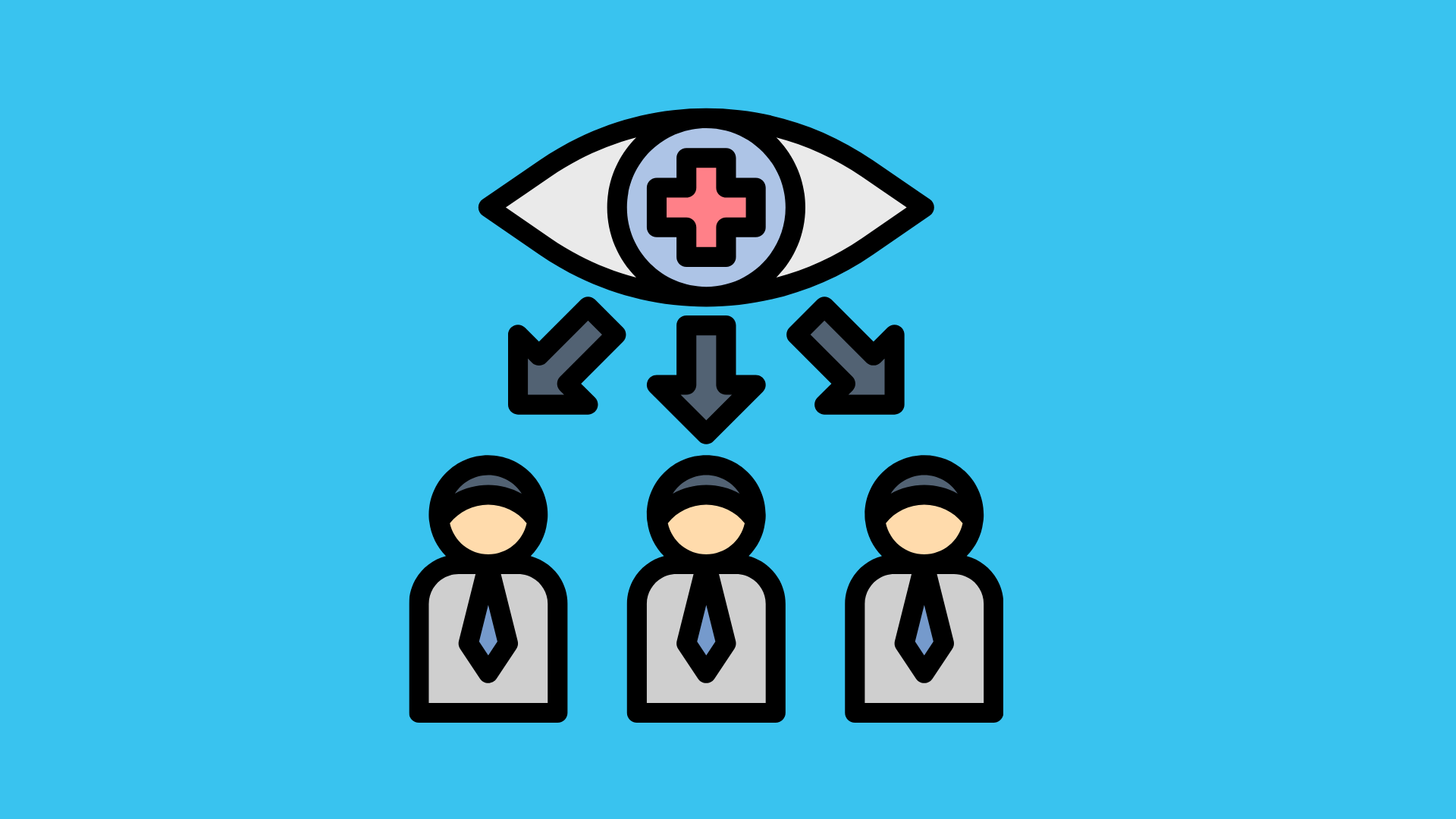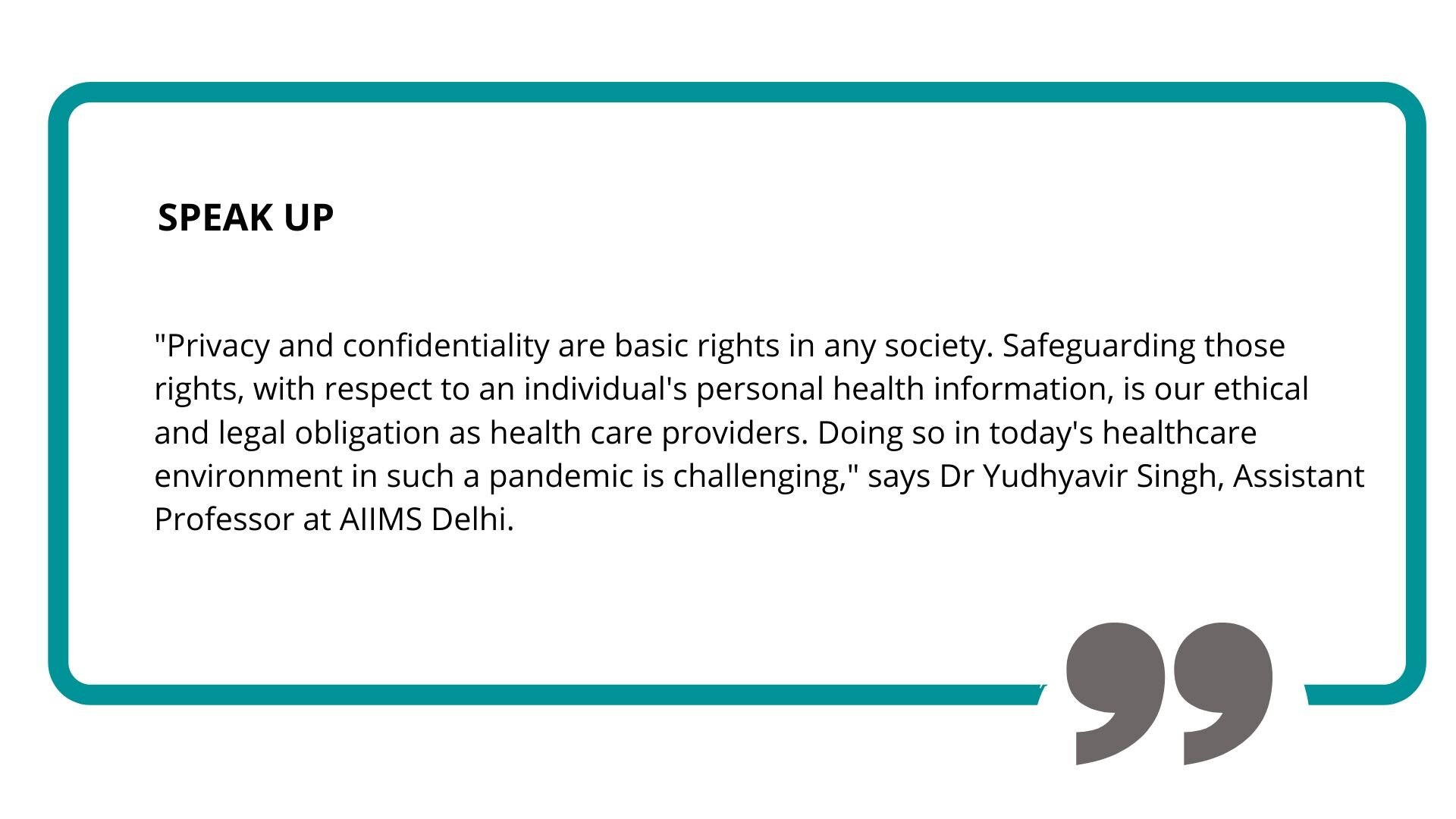Privacy VS. Pandemic Control
Disease surveillance is on the rise in India, but what are the privacy implications for citizens?
It was supposed to be a relaxing vacation for *Divya and her family. Her initial plan was to travel to New Zealand during February, however, as reports of coronavirus started coming out of China, the trip was pushed back to March. Before leaving on her long-awaited journey, Divya consulted several doctors to ensure that her two children would be safe. She was given the green light from five doctors, including a paediatrician, and departed as planned. However, by the time the family of four reached New Zealand, the state of world health had changed. Upon returning to India, the family’s hands were stamped by authorities at the airport before they were put under quarantine. It wasn’t only the isolation that Divya was unprepared for; it was the public shaming.
"People looked at us as if we…were carriers of the coronavirus." The negativity started with the owner of her rented house, who lived on the first floor. “He told us to vacate the house and asked us not to touch the gate. We were unfairly shamed to the point that I couldn't take it anymore," recalls Divya, who moved into her mom's house. But, soon, her mom's neighbours started calling and complaining. "I couldn't even go to the terrace, because people would start banging doors and windows because they thought we would pass on the infection to them. We faced a lot of discrimination."
The Karnataka government has published home addresses of quarantined residents amid the COVID-19 pandemic, and Divya's address was listed. "I saw the best of humanity and the worst of humanity during that phase,” she says. “The harassment faced by individuals is a real problem, and very few people are talking about it." Divya admits that it was a very emotionally difficult phase for her.
Divya is not alone. Tinu Cherian, a communications professional whose hand was stamped by authorities during quarantine, believes it was wrong of the Karnataka government to put identifiable details of many people in the public domain. "Note that these are not Corona positive cases. These are people who have only returned from an international trip. The details were given voluntarily when they arrived at the airports, but the government chose to publish the information publicly. One of my friends had to face inhumane treatment and abuse in WhatsApp groups. She was treated like a criminal by people who had known her for 10-15 years.”
In India, there have been many suicides among patients who were worried about their illness. In the West, patients have shared their battle on social media platforms like Instagram and become heroes; could the same be achieved in India?
“We need to support individuals through counselling, community engagement, positive reinforcement of verifiable information and also individuals taking the responsibility not to share verifiable information on channels like WhatsApp. It is not just about vaccines, drugs or interventions, but about health communication,” says health professional Anant Bhan.
Disease surveillance: Can we ignore privacy if it stops a pandemic?
The professional definition of disease surveillance is as follows:
“Disease surveillance is an ongoing process that involves the systematic collection, analysis, interpretation, and dissemination of information regarding the occurrence of diseases in defined populations for public health action to reduce morbidity and mortality.[1]”
John Snow, the father of epidemiology, used statistical mapping methods to determine how cholera was spread in 19th-century London. Contact tracing apps like Aarogya Setu want to map people in a similar way to contain the spread of the disease. Srinivas Kodali, an independent researcher working on technology, data and governance, feels that apps like these pose huge privacy concerns.
“One must look at Arogya Setu, as a measure to control human activity. Now, it is transforming into something like an e-pass, which helps essential workers to move around freely. It is very clear that it is no longer a healthcare app. You can ignore privacy, if the healthcare data is shared with epidemiologists who are trained to do this. But you don’t have a single epidemiologist who is involved in the Arogya Setu app development.”
Another obvious drawback to these kinds of platforms is the existence of false positives. If there are two people living in apartments one above the other, a Bluetooth-powered app doesn’t know they are on two different floors. The app cannot determine with certainty that someone has been in contact with an infected person, it can only report physical proximity— with no regard for walls, floors and ceilings. A Senior Director at the Government Technology Agency in Singapore, Jason Bay, says, automatic contact tracing is not a panacea for COVID-19. This, despite his position as product lead for Trace Together, the world’s first nationwide Bluetooth contact tracing system.
Furthermore, contact tracing apps are meant for smartphones. There are 500 billion internet users who have smartphones, but there are another 500 million people using mobile connections without smartphones. Nikhil Pahwa, founder of digital news platform MediaNama, is not so sure of the real impact of these programs. According to him, “The app works only if we have a large population of the country that has this app installed. Even then the outcome will be probabilistic. Therefore, the benefit of such apps is still not clear.”
Is there anything the law can do to help?
The general belief behind these contact tracing apps is that violation of privacy is necessary in these unprecedented times of pandemic in a world of technological prowess. If an app is tracking your location and determining who you are in contact with all the time, there are no legal provisions in India to protest the use of that data for any purpose other than disease management.
That’s why it is important to check the app contract carefully. One such application, Aarogya Setu, has strong terms and regulations as per the data that is collected. As do similar apps, Aarogya Setu collects personal and geographical information, as well as information of users that you are in proximity with, before running risk assessment tests. The program encrypts the data and uses a unique ID, which is then linked with all the data that it collects about you.
So, is it safe to use the Aarogya Setu app as a blanket solution, as the government plans? Pahwa, who is also a digital rights activist, points out that the app removes and deletes the data on a frequent basis, and the data is shared with the government only if a person tests positive for COVID-19. This certainly seems to be a more idealistic way to deal with the reality of personal data collection, and for the time being there may be few other options— except, of course, not installing the app in the first place.
————————————————————————————————————————————————————————————
[1] Mandell, Douglas, and Bennett. Principles and Practice of Infectious Diseases (Eighth Edition), 2015.










